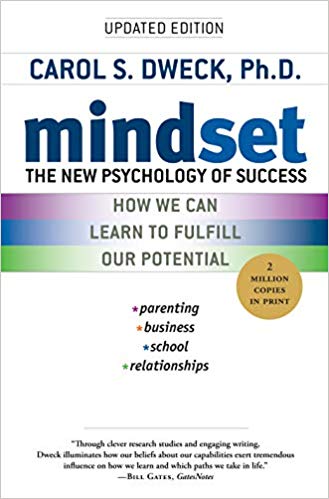

This article is an excerpt from the Shortform summary of "Mindset" by Carol Dweck. Shortform has the world's best summaries of books you should be reading.
Like this article? Sign up for a free trial here .
What is the meaning of success? Does your definition of success in life matter? How do you define “successful”?
We’ll cover why how you define “successful” actually influences how successful you are in life. Learn how the world’s best athletes and CEOs define success, and why it makes them more successful than the rest of us.
Define “Successful”
Simply put, mindsets are beliefs. The book Mindset shows how mindsets or beliefs dictate people’s aspirations; how they alter the way people define success in life, failure, and effort; and what that means in school, sports, work, and relationships. It also shows how mindsets can be changed.
The Meaning of Success
The two mindsets are different worlds where the same things have different meanings for the inhabitants of each world. Most important is how people with each mindset — fixed or growth — define and interpret success and failure.
In general, in the fixed mindset world, people define success in life this way: it’s about proving to yourself and others that you’re smart and talented. It’s about validation. If you fail, it means you’re not smart or talented, therefore failure is intolerable. Failure is any type of setback: a bad grade, losing a competition, not getting the job or promotion you want, being rejected. Effort is a negative — if you need it, that means you’re not smart.
In the growth mindset world where you can change, people define success in life differently: it’s about stretching yourself, learning, and improving. Failure is not seizing an opportunity to learn, not striving for what’s important to you, not reaching for your potential. Effort is a positive — it helps you get smarter and increase your abilities.
Remember, mindsets are beliefs — although they’re powerful, you can change them. How you define “successful” can change as well.
Definition of Success in Life
When you start out in life, the meaning of success is about learning. You’re born with a drive to learn. Babies learn and stretch themselves every day. They don’t worry about failing or quit. For instance, they don’t decide walking is too hard and give up or fear falling. They just keep trying.
As early as preschool age, however, children develop mindsets or beliefs about their ability. Fixed mindsets slow or shut down the intense drive to learn. Some children become fearful of not being seen as smart; they begin rejecting challenges. Others, with a growth mindset, embrace challenges and relish becoming smarter. Fixed mindset children become non-learners.
For instance, the author and her research team offered four-year-olds a choice of redoing an easy puzzle or trying a new, harder one. Children who believed in fixed traits wanted to redo the easy puzzle (the safe choice), while children with growth mindsets wondered why anyone would want to keep redoing the same thing when they could try something else. In other words, children with a fixed mindset wanted to make sure they succeeded, as they believed smart people always do, while those with a growth mindset wanted to get smarter.
Over time, people with fixed mindsets and growth mindsets come to define success differently.
- Fixed-minded people avoid challenges because they want to feel smart and in control. In contrast, growth-minded people thrive on challenge and stretch themselves past their comfort zone.
- Fixed-minded people care about perfection. To feel smart, they not only have to “get it” right away, they have to be perfect at it. In contrast, growth-minded people said they felt smart when they tried hard and made progress or were able to do something they couldn’t do before. Feeling smart was about learning.
- Fixed-minded people expect to immediately perform at high levels, without the need to learn. They don’t allow themselves time to develop or become. As a result, they get frustrated by failure and give up early. In contrast, growth-minded people expect to need to put in lots of time and effort to get better at things, and are thus more resistant to failure.
- Fixed-minded people prefer to be validated by others as capable, to be seen as geniuses. In contrast, growth-minded people aren’t afraid to acknowledge a need to learn through questioning and receiving critical feedback.
Here’s a range of examples about how fixed- and growth-minded people behave differently.
Define “Successful” in College Classes
At the University of Hong Kong, everything is taught and learned in English, which means strong English skills are essential to a student’s academic success. Students have varying English skills when they arrive. Researchers measured incoming students’ mindsets, then asked those with poor English skills whether they would take a course to improve their English if it were offered. Fixed-mindset students weren’t interested, while growth-mindset students said “yes” enthusiastically. The fixed-mindset students were willing to risk their academic careers for the short-term value of seeming smart.
Another last study observed pre-med students facing a difficult chemistry course. Researchers found that fixed-mindset students only stayed interested in the course if they did well immediately. Those who struggled with it at the outset lost interest — it didn’t validate their intelligence. In contrast, for growth-minded students, the challenging nature of the course drove their interest and motivated them.
Define “Successful” in Business
Chrysler CEO Lee Iacocca was successful at first in introducing new initiatives in the struggling company. But after his initial success, he lapsed into a fixed mindset of seeking validation rather than improvement. He kept bringing back the same models of cars each year, although consumers were rejecting them for more innovative Japanese models. He got rid of his critics and elevated people who fed his ego, which was a road to failure (more on his experience follows in Chapter 5).
Growth-minded CEOs aren’t afraid to acknowledge a need to learn through questioning and receiving critical feedback — as a result, they grow and their companies do too. For example, when Lou Gerstner was hired to turn IBM around, he ignored Wall Street and focused on the long term, although he was criticized for not immediately boosting stock prices. They define “successful” by what they’ve learned through experience and feedback.
Define “Successful” in Sports
Sports offers numerous examples of growth-minded athletes who constantly stretched themselves. In fact, stretching, rather than winning, is what motivated them. This is how they define “successful.”
For example, as a child, soccer player Mia Hamm pitted herself against older, more experienced players to improve her skills. At age ten, she joined the eleven-year-old boys’ team. She continued this approach in her college career, joining the top college team in the U.S. She tried to “play up” to the level of better players and as a result, she improved faster than she had thought possible.
The Meaning of Success and Failure
Researchers studied student-athletes’ beliefs on athletic ability. Students’ with the growth mindset expressed views matching those of champion athletes. In other words, they shared a champion’s mindset:
1) They define success as learning, improving, and doing their best. Jackie Joyner-Kersee said improvement was more important to her than winning. She wasn’t bothered by losing if she saw improvement and felt she’d done her best. She just went back to work. Tiger Woods and Mia Hamm loved to win, but the effort they’d made was more important to them. Basketball coach John Wooden said he enjoyed the games his team had prepared well for and played well as much as he enjoyed championship games. In contrast, athletes with a fixed mindset focused on winning to prove their superiority.
2) When they experience failures or setbacks, it motivates them. They learn from failures and treat them as a wake-up call. Michael Jordan wasn’t afraid of failures. He acknowledged them and practiced harder. In an advertisement, he noted that he’d missed over nine thousand shots, lost nearly three hundred games, and failed to make a game-winning shot 26 times. Conversely, athletes with fixed mindsets are humiliated by losses and setbacks.
3) They learn to take control of and manage all aspects of the game or sport. As Michael Jordan aged, he worked on conditioning and also worked to become a more well-rounded player, rather than relying on a few key shots. Tiger Woods worked on his swing at a young age, but he also learned about course strategy and keeping his mind focused and shutting out distractions. He managed his motivation by making practice fun. Athletes with a fixed mindset, like John McEnroe, don’t take control — they blame outside forces when they fail.
Messages about the Meaning of Success
When children do something well, most parents want to encourage them or build their confidence, but often they’re not helping the way they think they are. Here’s how many parents respond — and what their kids hear:
- “Wow, you learned that fast; you’re really smart.” What the child hears: If you don’t learn fast, it means you’re dumb.
- “Look how smart you are — you got an A without even studying.” What the child hears: If I have to study, it means I’m not smart.
- “Look at that artwork — You’re the next Picasso.” What the child hears: If I draw something difficult and fail, they’ll see I’m not really a talented artist. I’d better not take the chance.
These examples show that praising children’s intelligence hurts their motivation and performance. Children getting fixed-mindset praise develop resistance to difficult challenges that might show they’re not so smart or talented. If they try and fail, they further lose motivation and confidence. They believe the message that their performance — success or failure — reflects who they are: If success means they’re smart, failure means they’re dumb.
The best way for parents to help their children build confidence is to teach them to welcome challenges, to want to understand mistakes, to enjoy effort, and to continually look for and try new learning strategies.
———End of Preview———

Like what you just read? Read the rest of the world's best summary of "Mindset" at Shortform . Learn the book's critical concepts in 20 minutes or less .
Here's what you'll find in our full Mindset summary :
- The difference between a growth and a fixed mindset
- How a fixed mindset keeps you back throughout your life: education, relationships, and career
- The 7 key ways to build a growth mindset for yourself






